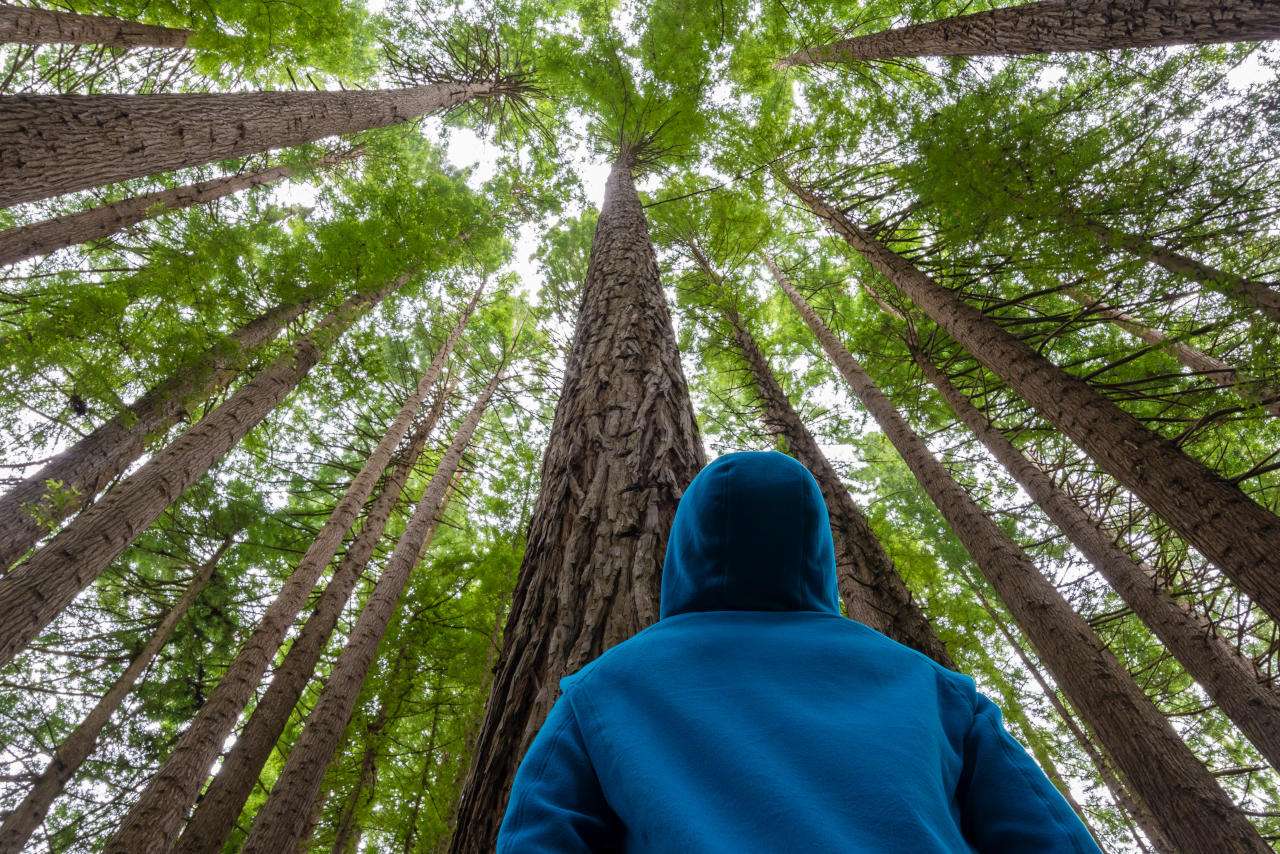The average American now spends close to 10 hours a day narrowly staring at rectangular, 2D screens that emit blue light.
Blue light from screens instantly releases dopamine on command, making it highly addictive. Additionally, when used after dark blue light has been shown to significantly reduce the release of sleep and disrupt both falling asleep and staying asleep.
These screens with their hypnotic blue light are in many ways more addictive for the average person than drugs simply because they are always available and at arms reach. Additionally, we need them to communicate and do our jobs so it’s hard to resist them.
While developing mindful habits can be helpful to reduce unnecessary screentime, it’s also important to reverse the way that hyperstimulation from screens can dull our senses.
That’s where rewilding your senses through forest meditation and ecotherapy can help.
Rewilding With Forest Meditation And Ecotherapy
Spending extended periods of at least 2-3 days completely unplugged in nature is the best way I’ve found to hit the reset button on stress and compulsive digital habits.
This is something only a small portion of the population of highly-developed countries do. Today the majority of people in Western countries have never seen the full glory of the band of the Milky Way Galaxy in the night sky since light pollution distinguishes this natural marvel.
When we fully unplug and tune our senses into the natural world, we can start to reverse the dulling of the senses.
The best way to do this is in the forest because the fractal self-similar branching patterns of trees naturally relax our senses and allow us to be more present.
Forest meditation is one of my favourite forms of ecotherapy because it’s so accessible to everyone. It starts with tuning into your 5 senses on a mindful hike and letting go of all those thoughts about yourself and the world programmed into all of us by the mass media, education and advertising industrial complexes.
Why We Need To Rewild Our Senses
So much of the climate change discussion is about top-down bureaucratic solutions imposed on people. To really address the roots of climate change, we need to go beyond this and address the fundamental discussion from nature and sensory experience that is so common in the modern world.
While large-scale global solutions are necessary, we have to rewild our senses by learning to coexist in harmony and balance with our local ecosystem. We can do this by learning to identify plants, mushrooms, trees, birds and animals living our midst — and understanding the interconnected web of life that connect us to all these living beings.
In the short video below, I share my thoughts on how the sedentary nature of modern living and staring at flat 2D digital screens has dulled our senses and why we need to “rewild” and re-activate our senses by spending more time immersed in the wild.
Time spent immersed in wild ecosystems like forests where we can explore our sensory experience in a rich environment is a powerful way to invoke a sense of awe and wonder, which I have found to be a powerful antidote to the anxiety and stress of modern living.
As one of my favourite sayings go, the human spirit needs places where nature has not been rearranged by the hands of man.
- Reconnect To Your Original Nature Through Awe And Wonder - April 17, 2024
- Pasqueflower: A Spring Wildflower That Symbolizes Rebirth - April 5, 2024
- Deep Embodiment And The Flow of Embodied Awareness - April 1, 2024



